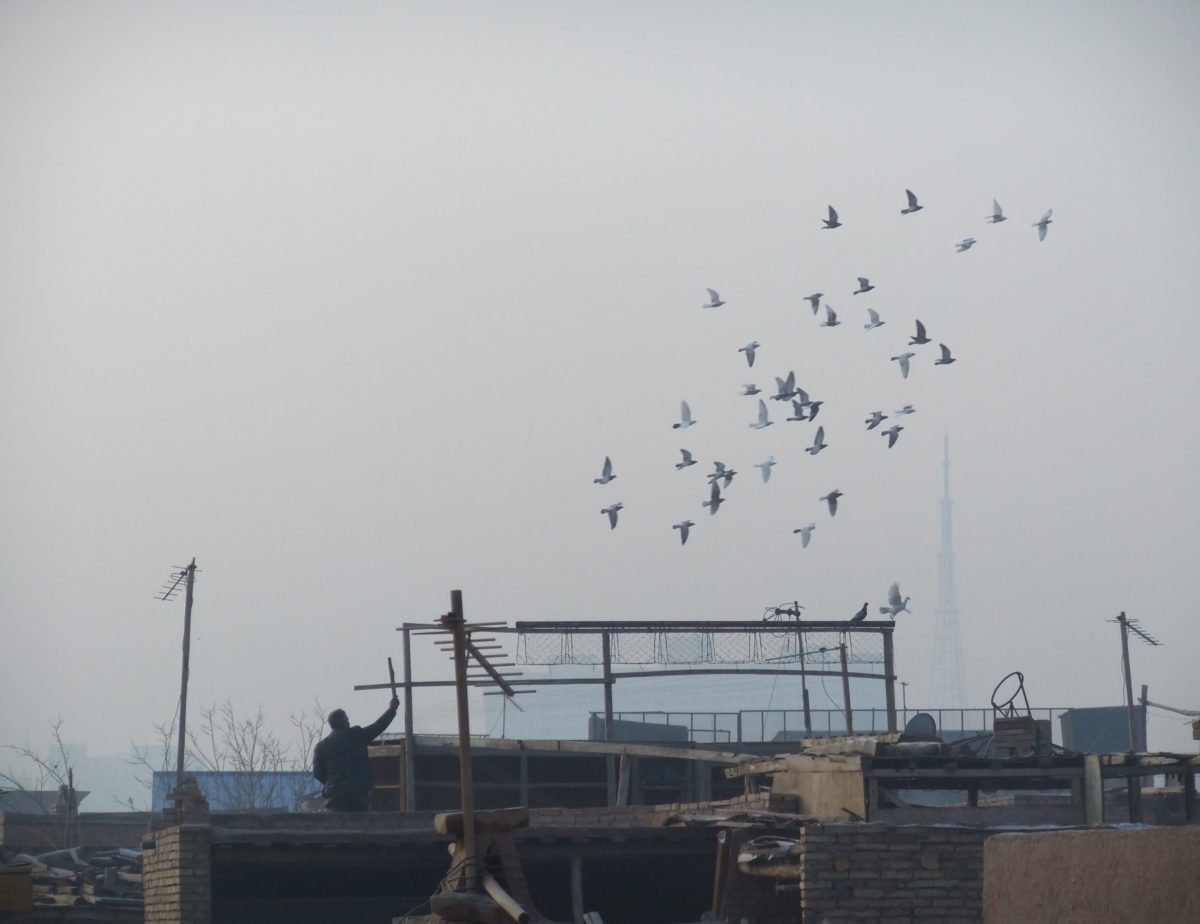U.S. officials call out companies for forced Uyghur labor in their supply chains
Activists and U.S. officials have hailed legislation intended to stop goods made with coerced Uyghur labor, but complain that tainted goods are still reaching U.S. markets in large numbers.

An April 18 hearing of the U.S. Congressional-Executive Commission on China (CECC) aimed to assess the success of the Uyghur Forced Labor Prevention Act (UFLPA), and close loopholes.
The Act was signed into law by U.S. President Joe Biden on December 23, 2021, with strong bipartisan support.
A number of media organizations, scholars, and nonprofits have compiled compelling evidence of forced labor by Uyghurs in agriculture and manufacturing. The UFPLA bans the import of any product from Xinjiang — assuming that they are products of forced labor — unless companies can prove otherwise and present documentation to the contrary.
Shein and Temu
At the hearing, members of the CECC and witnesses complained of multiple violations. Two companies received special mention: Shein and Temu, which operate apps that offer extremely cheap clothing and other goods that are shipped to American customers directly from China. Because the goods are sold at such low prices, most packages are subject to the so-called “de minimus” rule, which allows an imported package to enter the U.S. free of tariff, taxes, or inspection if its value is under $800.
Bloomberg-sponsored lab tests last November found Xinjiang cotton in garments shipped by Shein. Approximately 3 million Shein shipments still pass through U.S customs uninspected every day.
At the hearing, witness Anasuya Syam, the human rights and trade policy director of the Human Trafficking Legal Centre, said she wanted to see more stringent supervision of the packages pouring in under the de-minimis rule: “Goods from slave labor could be coming in right under our noses and no one is checking them.”
She said that more attention should be paid to goods arriving by mail, road, and rail, and they should at the very least be spot-checked for size and value. “We only have access to shipping data so far; none for air, land, or rail cargo. The trajectory should be for more data, not less,” she stressed.
Walmart, GM, Intel, Milwaukee Tool, and Thermo Fisher Scientific
Others members and witnesses talked of the difficulties that companies have in ensuring that their supply chains are free of forced labor, and of corporate bosses who feign helplessness.
Rep. Chris Smith (R-NJ), chairman of the CECC, said that suspect goods are still entering the U.S., and called for “full transparency.” Why is the entity list of rogue companies “still so spartan,” he asked, and “are there still goods using slave labor, being made outside the region?”
He said he was not reassured by the Milwaukee Tool company’s reassurances over its alleged use of prison labor and questioned the use of “repressive practices” by Thermo Fisher Scientific, saying he wanted to “prick the consciences of corporate entities.”
He also asked witnesses what their views were on a letter written by “a group of executives from 20 companies including Walmart, General Motors, and Intel [asking] the U.S. government to hide key import data.” Anasuya Syam said the proposal should be “summarily rejected.”
Third-country transit and other workarounds
CECC members and witnesses also pointed out the problem of goods that have their origin disguised.
China news, weekly.
Sign up for The China Project’s weekly newsletter, our free roundup of the most important China stories.
Senator Jeff Merkley (D-OR) said, “The U.S. government’s forced labor enforcement task force needs to implement the law even more aggressively with particular attention to the transshipment of Xinjiang-originated goods via third countries,” he said.
Professor Laura Murphy, a professor of human rights and contemporary slavery at the U.K.’s Sheffield Hallam University, said some companies merely change the names of their subsidiaries and continue sourcing from the Xinjiang region.
Her research into forced labor over 20 years has identified 55,000 companies that operate in Xinjiang, 3,300 of which are in the textile industry. She says she has uncovered “significant evidence” to link at least 150 of these to forced labor. Why, she asked, were only 30 of these on the U.S. entity list? Some of these companies “are egregious bad actors, and they’re not on the entity list.”
Cobalt, nickel, steel, viscose, and more
CECC members also urged for an end to U.S. reliance on China for cobalt, nickel, and other critical minerals, which they say are tainted with forced labor. Kit Conklin, a senior fellow at the Atlantic Council’s GeoTech Center, said that billions of dollars of key rare earth minerals are imported from Xinjiang, and these should be scrutinized as a priority.
Murphy said that existing restrictions on the import of Xinjiang-sourced polysilicon, cotton, and tomatoes should be expanded to include critical minerals, steel, aluminum, and synthetic materials such as viscose and polyester.
Speaking to The China Project after the meeting, Rushan Abbas, the director of the Campaign for Uyghurs, said, “We must all reject the notion that our economy depends on slave labor and let the implementation of the Uyghur Forced Labor Prevention Act be a powerful example of our commitment to upholding human dignity.”






